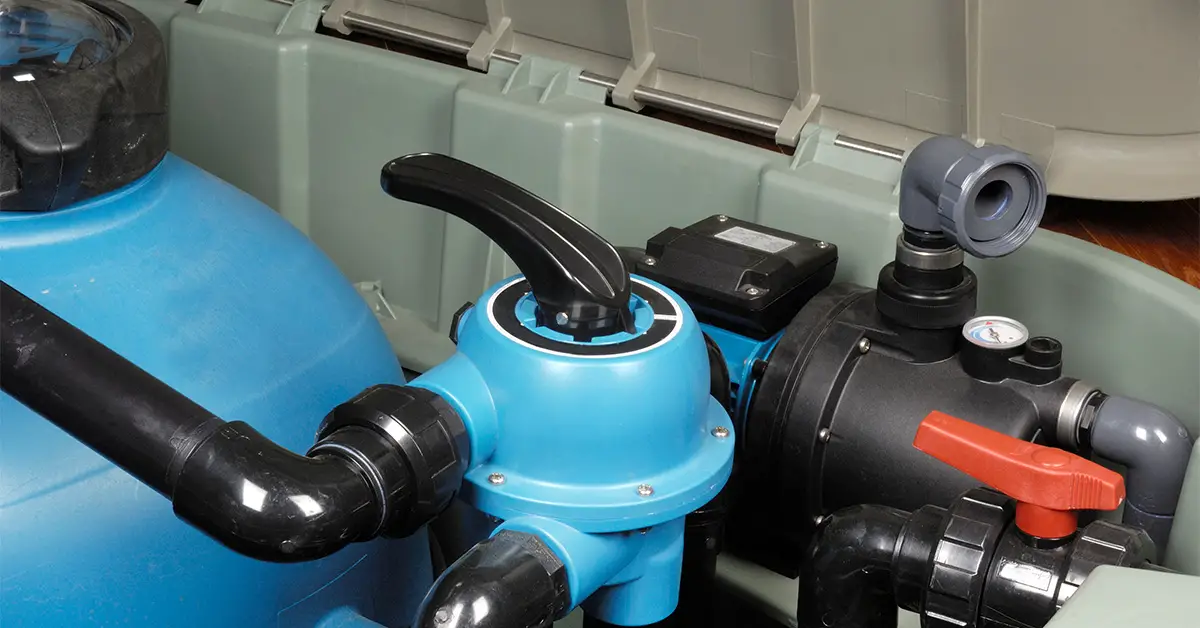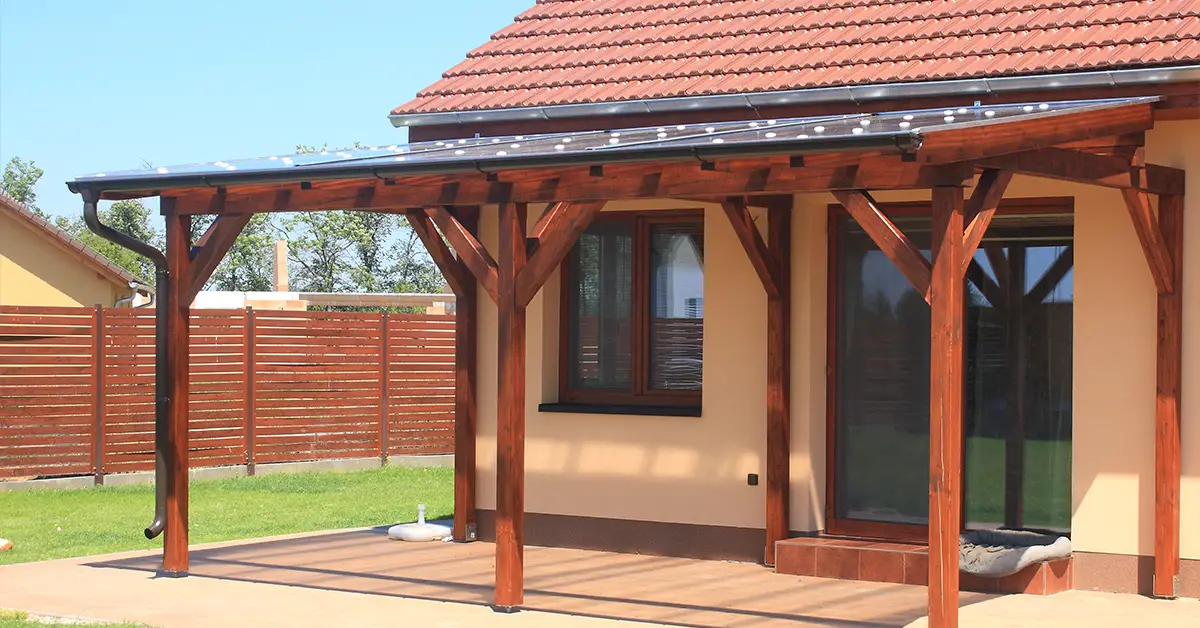If your tenant wants to install a pool, should you let them? There is no easy answer to this question. A pool is a liability – someone might get hurt, and you could be legally responsible.
However, a pool can make your property more valuable. You can also write a contract that makes it hard to sue you if anything bad happens. You can also use a fence and other safety features to minimize the risk.
Your tenants cannot build anything on your property without your permission. If you don’t like the risks, you can refuse to let them build a pool.
Table of Contents
Is it a Good or Bad Idea?
It is neither clearly good nor clearly bad. There are a lot of things to consider, and you have to use your best judgment.
One hazard is that pools are not entirely safe. An unsupervised kid can potentially drown in a pool, so there is an ethical and legal risk. The odds of a kid drowning in the pool are low if you insist on safety precautions.
A pool could attract neighborhood kids. They could either swim in the pool with the tenant’s permission or without it. Some kids will sneak into pools on other people’s properties.
In the unlikely event that anyone gets hurt or killed, you could face and lose a lawsuit. Even though your tenant had the pool installed, you could still face legal consequences.
It Is Arguably Still a Good Idea
Despite the risks, letting the tenant build a pool has some advantages. If you own a house with a pool, it may be easier to find renters or buyers. If your tenants leave, you can advertise the pool to attract new people.
Pools are such a selling point that you can charge more money to renters. To avoid maintenance costs outweighing the extra rent money, you can get your tenants to pay for pool maintenance.
An alternative can be to let your tenant install an above ground pool.
What to Consider Before Saying Yes?
Before saying yes, you want to do a few things to minimize your risk, plus consider the disadvantages of a higher insurance rate. Make your tenants sign a contract. Build a fence, put up a warning sign, and talk to your insurance company about how it will affect what you pay.
Insist on Safety Features
In some places, it is not even legal to have a pool without a fence. A fence is a vital safety feature that keeps kids from climbing into the neighbor’s pool and potentially drowning.
Even if you are not required to have a fence in your area, you should always insist on a fence. Without a fence, you are sure to lose in court as you will be seen as negligent for not bothering with a fence.
A Pool May Raise Your Insurance Rate
One of the biggest reasons not to let a tenant install a backyard pool is that it will make your insurance more expensive. The pool is a risk and a liability, so your insurance company won’t like it. You will hate to tell your insurer about it, and they will start charging you a higher rate.
Possibly, the insurance company will even say that they won’t insure you at all if you build a pool. This is because the insurance company would have to pay a fortune if anyone drowns in the pool. Even though this is unlikely, an insurance company would lose money if they were too lenient on people installing pools.
One sensible way to allow your tenant to install a pool is to require them to cover the entire cost of it. If they are willing to pay for your insurance, plus will put up a fence, you might as well let them build a pool. Pools are a lot of fun, and the odds of anyone getting hurt are low.
Is it Ok to Put Up a Sign Saying Children Cannot Swim Unsupervised?
Yes, and this is a very good idea. If you put up a sign saying that children under 10 (or older) cannot swim unsupervised, you will make your pool a little safer.
Do whatever you can to prevent anyone from getting hurt and from you facing a huge lawsuit. The younger the kids are, the more likely they will get hurt without adult supervision.
Don’t count on your tenants to enforce the rules. You might want to check by the odd time to see if they are letting young children play in the pool with no adults around. You can still be liable if the tenants break a rule you set.
Make Sure the Tenant Knows Your Rules
Make sure your rules are clear. Otherwise, your tenant might do something very wrong without knowing you don’t want them to do this.
Since breaking necessary pool rules could lead to an injury and a court case, you should write the rules down and give a copy of them to your tenant. Make sure that they know doing something like leaving the gate on the fence unlocked is serious.
A Contract Can Protect You
You should ask your tenant to sign an agreement, and not merely agree to some rules. You can make your tenant agree that you are not responsible for any injuries or deaths in your pool. This isn’t guaranteed to work, but it does reduce the risk you face.
What to Put Inside the Agreement?
First, write an introduction that briefly explains that this document is a contract about pool use. Include the date, your name, the address, and the tenant’s names. Any of the following rules can keep other people safe and minimize your legal risk:
- Clarify that the tenant uses the pool at their own risk. This is the simplest way of protecting yourself from lawsuits.
- Include a rule forbidding kids under a certain age without supervision.
- State that anyone using the pool must be cautious, and the landlord is not legally responsible for any damages that occur while swimming.
- Make the tenant responsible for maintenance and other costs.
- Clarify that there may be times when the pool is not maintained and cannot be used. This way, you are not legally required to fix the pool immediately if you have a reason not to.
- It should say that if a tenant damages the pool, they are financially responsible.
- Finally, you should clarify that the tenant can lose their pool privileges if they break these rules.
That list is not necessarily a complete list of rules. Sometimes, you can allow your tenants to invite as many guests as they want.
Other times, this isn’t fair to other people that live in the same building. If you can think of any other important rules, include them in the contract. Putting a lot of small and unimportant rules in the contract isn’t a good idea.
Are Landlords Responsible for Pool Maintenance?
Yes, you are responsible for maintaining a pool on your property, even if it is your tenant’s pool. You will have to find a way to pass the cost of owning the pool to your tenant, or else you will lose money maintaining the pool. There are also other costs, such as filling the pool with water and doing any necessary major repairs.
You Can Get in Legal Trouble if You Don’t Maintain Your Pool
Sometimes, failing to maintain a pool properly leads to an injury. In that case, you will be particularly vulnerable to legal action. A landlord is very easy to sue if:
- They know that something about their property is dangerous
- They do not take reasonable steps to fix it
- This leads to a serious injury that the landlord should have foreseen
Even if the person who gets hurt in your pool is trespassing, you may still be in trouble. You have to fix anything that makes your property dangerous.
What Makes An Owner Liable for Damages?
Someone must prove duty, breach, causation, and damages to win a case against a landlord. Landlords, business owners, and other property owners are a duty to protect people from and warn people about hazards. If you know about something dangerous on your property and don’t warn people, you could get sued if they get hurt.
A breach means that the landlord did something very wrong – for example, not putting a fence around the pool. Even not putting out mats and letting the ground get too slippery could be a breach.
Causation means that it is the landlord’s fault and not the injured person’s fault. For example, if someone does something reckless and gets hurt, the landlord may win in court. Damages mean that the injury was reasonably serious – a lot of pain, missed days at work, or medical expenses.
Does a Tenant Have to Be Present for Repairs?
No, the tenant does not have to be present, so you can repair the pool while the tenant is at work without breaking any laws. Depending on where you live, there are probably laws against the landlord entering the tenant’s home when they are away without a good reason.
However, a ‘good reason’ does include entering a home for the sake of repairs. You might have to give your tenant notice in advance. Look up the laws in your area.
Don’t Count On Your Tenants Cleaning the Pool
While there is a chance that your tenants will keep your pool clean and do basic maintenance, it is also possible that they will neglect it. Eventually, the neglect could lead to damage and costly repairs.
Even if your tenants seem trustworthy, you might not really and truly be able to trust them. They might neglect the pool if they are busy, stressed out, or having too much fun to care about maintaining the pool. If you try to save money by getting the tenants to clean the pool themselves, this might backfire and cost you a lot more money than a pool cleaner would have.







